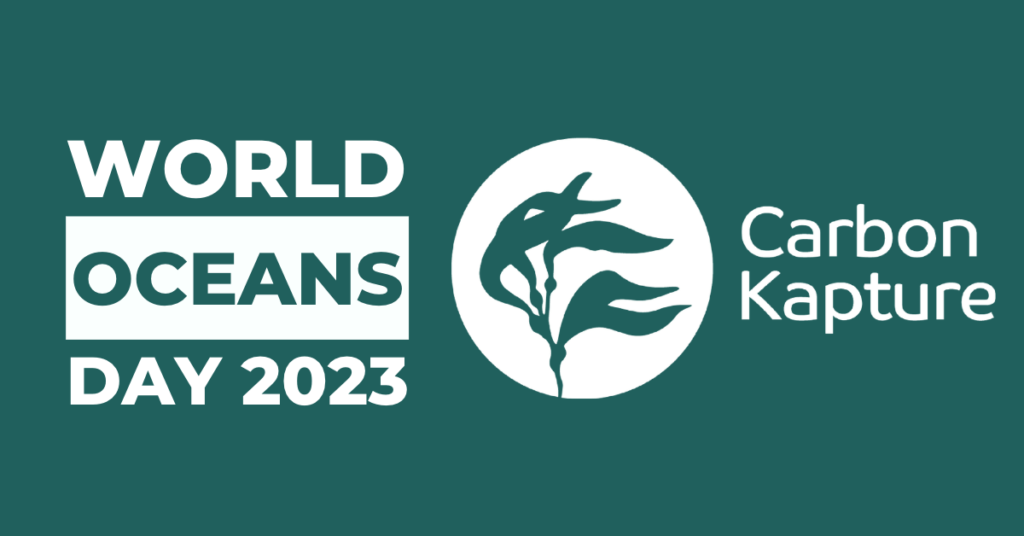World Oceans Day: Seaweed solutions tackling climate change | World Economic Forum (weforum.org)
This UK start-up has launched a seaweed farm to tackle climate change
- World Oceans Day is on 8 June. The theme this year is Planet Ocean: Tides are changing.
- Ocean warming due to climate change has reached record levels, impacting marine ecosystems and the livelihoods it supports.
- But nature-based solutions, such as seaweed farms capturing and storing carbon, can help to tackle climate change and restore vital biodiversity.
A few years ago, watching a climate change documentary gave Howard Gunstock and his business partner Dave Walker-Nix a lightbulb moment.
There was a graphic showing a “mythical machine”, yet to be invented, which could suck carbon dioxide out of the air.
“The joke was, ‘If only there was something that could do this naturally’, and of course there is – it’s trees,” recalls Gunstock. “Then Dave said, ‘Seaweed grows 30 times faster than trees’.”
That moment sowed the seeds of Carbon Kapture, a sustainability start-up calling for companies and individuals to sponsor ropes growing seaweed on its first seaweed farm, a partnership with shellfish farmers to grow kelp in Ireland’s Mulroy Bay.
The seaweed is harvested and turned into biochar, through a heating process called pyrolysis, which is rich in carbon and nutrients, that the company will then donate to local farmers, to enrich soil and reduce the need for fertilizer.
“We want to create a circular ecology business model, effectively using nature to help nature to bring back some balance to the imbalance of man-made climate change,” Gunstock tells the World Economic Forum.
Putting the ocean first
World Oceans Day is on 8 June. This year's theme is Planet Ocean: Tides are Changing and the UN will bring together decision-makers, scientists and civil society in a special event to “put the ocean first”.
As Gunstock says: “We’re a blue planet not a green planet – two out of every three breaths we take comes from oxygen created by life in our oceans, but they’re in such poor health.”
The ocean is home to around 226,000 species that we know of so far – but so much of it remains undiscovered and the real total could be closer to 700,000, according to UNESCO
It also supports the livelihood of more than 3 billion people, but much of our focus on efforts to tackle the impacts of climate change has been on land and the ocean is suffering.
In April 2023, sea surface temperatures reached record levels. In March, the Intergovernmental Panel on Climate Change (IPCC) warned ocean warming has already adversely affected food production from fisheries and shellfish aquaculture in some areas.
